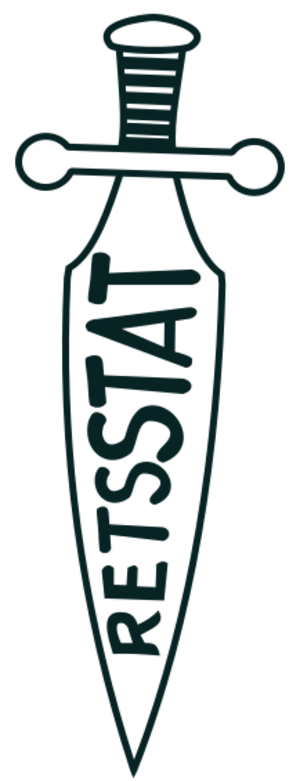Rechtsstaat facts for kids
Rechtsstaat (pronounced "rekts-shtaat") is a big idea from Europe. It means that in a country, the government's power is limited by laws. This is like saying the government must follow its own rules, just like everyone else. It's very similar to the idea of the rule of law, which means that laws apply to everyone equally, including those in power.
Contents
What is Rechtsstaat?
The word "Rechtsstaat" comes from German. It combines "Recht" (meaning law or justice) and "Staat" (meaning state or country). So, it literally means "law-state" or "state of law". It's about making sure that a country is run by fair laws, not just by the will of a few powerful people.
Why is it Important?
A Rechtsstaat protects people's rights and freedoms. It makes sure that the government cannot do whatever it wants. Instead, it must act according to rules that are clear and known to everyone. This helps prevent unfair treatment and keeps the government accountable to its citizens.
How Laws Limit Power
In a Rechtsstaat, laws are usually written down in a constitution or other legal documents. These laws set limits on what the government can do. For example, they might say that everyone has a right to a fair trial. They might also explain how new laws are made and how old ones can be changed.
Rechtsstaat and Rule of Law
While very similar, there are small differences between Rechtsstaat and the rule of law. The Rechtsstaat idea often includes a focus on social justice and making sure laws are not just followed, but also fair. The rule of law is more about the process of how laws are applied and that everyone is subject to them. Both ideas aim for a government that respects laws and protects its people.
Key Features of a Rechtsstaat
A country that follows the Rechtsstaat idea usually has several important features. These features help make sure that the government stays within the law and treats everyone fairly.
Separation of Powers
One key feature is the separation of powers. This means that the government's power is divided into different branches. Usually, these are:
- The legislature (like a parliament or congress) that makes laws.
- The executive branch (like the president or prime minister and their government) that carries out laws.
- The judiciary (the courts and judges) that interprets laws and settles disputes.
This separation prevents any one part of the government from becoming too powerful. Each branch checks the others, creating a balance.
Protecting Basic Rights
A Rechtsstaat also strongly protects the basic rights of its citizens. These are often called human rights or fundamental rights. They include things like freedom of speech, freedom of religion, and the right to privacy. The government cannot easily take these rights away.
Legal Certainty
Another important part is legal certainty. This means that laws should be clear, stable, and predictable. People should know what the law is and what to expect if they follow or break it. This helps people plan their lives and businesses without fear of sudden or unfair changes.
Independent Courts
For a Rechtsstaat to work, the courts must be independent. This means judges should not be influenced by politicians or other powerful groups. They must be free to make decisions based only on the law and the facts of a case. This ensures fair trials and justice for everyone.
History of the Idea
The idea of Rechtsstaat developed in Europe, especially in Germany, during the 18th and 19th centuries. Thinkers and philosophers wanted to create a system where governments were not absolute rulers but were bound by laws.
Early Ideas
Before the Rechtsstaat concept, many countries were ruled by kings or emperors who had almost unlimited power. People started to think about how to limit this power and protect individual freedoms. Ideas about natural rights and social contracts began to spread.
Influence on Modern Governments
The principles of Rechtsstaat have greatly influenced how many modern democratic governments are set up today. They are a foundation for fair governance, human rights, and the rule of law around the world.
Images for kids
-
German stamp (1981). Rechtsstaat, Fundamental Concept of Democracy – "The legislature is bound by the constitutional order, the executive and the judiciary by law and right." (Article 20(3) GG)
See also
 In Spanish: Rechtsstaat para niños
In Spanish: Rechtsstaat para niños
 | Charles R. Drew |
 | Benjamin Banneker |
 | Jane C. Wright |
 | Roger Arliner Young |



